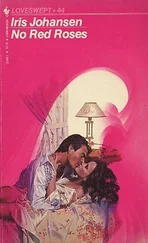Iris Murdoch - An Unofficial rose
Здесь есть возможность читать онлайн «Iris Murdoch - An Unofficial rose» весь текст электронной книги совершенно бесплатно (целиком полную версию без сокращений). В некоторых случаях можно слушать аудио, скачать через торрент в формате fb2 и присутствует краткое содержание. Жанр: Классическая проза, на английском языке. Описание произведения, (предисловие) а так же отзывы посетителей доступны на портале библиотеки ЛибКат.
- Название:An Unofficial rose
- Автор:
- Жанр:
- Год:неизвестен
- ISBN:нет данных
- Рейтинг книги:4 / 5. Голосов: 2
-
Избранное:Добавить в избранное
- Отзывы:
-
Ваша оценка:
- 80
- 1
- 2
- 3
- 4
- 5
An Unofficial rose: краткое содержание, описание и аннотация
Предлагаем к чтению аннотацию, описание, краткое содержание или предисловие (зависит от того, что написал сам автор книги «An Unofficial rose»). Если вы не нашли необходимую информацию о книге — напишите в комментариях, мы постараемся отыскать её.
An Unofficial rose — читать онлайн бесплатно полную книгу (весь текст) целиком
Ниже представлен текст книги, разбитый по страницам. Система сохранения места последней прочитанной страницы, позволяет с удобством читать онлайн бесплатно книгу «An Unofficial rose», без необходимости каждый раз заново искать на чём Вы остановились. Поставьте закладку, и сможете в любой момент перейти на страницу, на которой закончили чтение.
Интервал:
Закладка:
Chapter Thirty
'BE nicer to poor Penny when he comes back, said Ann.
Penn had now been in London with Humphrey for nearly a week. 'He won't come back, said Miranda. She was sitting up in bed.
The uncurtained window was wide open to the hot summer night. Miranda had been unwell for two days and had retired to her room. The doctor said there was nothing wrong with her, but Ann was sure it was the German measles coming on at last.
'Why ever not? said Ann.
'He won't come back, said Miranda. 'He'll stay in London till the last moment and then ask you to send his things.
'But he said he'd come back. He must come back to say a proper good-bye.
Miranda shrugged her shoulders. 'He's a rude boy, she said. 'What can you expect, considering what his father is?
'Miranda!
Ann frowned at her daughter across the table littered with dolls, comics, Tintins, women's magazines, chocolate, newspapers, tins of orange juice, and the remains of a cherry cake. Then she resumed her restless pacing. She was very sorry that Penn had gone. She had not, till his departure, realized the extent to which he had, as it were, blessedly kept Miranda off her. She was frightened and a little shocked to find herself thinking in this way. But since she had been alone in the house with Miranda there had been a tension, an excessive mutual consciousness, a hostile magnetism. They were continually watching each other and seeking each other out, and making each other's activities' seem pointless. The situation had been only partially resolved by Miranda's becoming ill.
Ann was still undecided about Felix. At least she told herself that she was undecided, although the comparative steadiness with which she endured the interval which she had imposed upon them both sometimes suggested to her that she must have decided in his favour, that she must by now, without noticing it, have crossed the line. Yet she went on from moment to moment without doing or saying anything decisive. The great dazzling void which had, at the end of her talk with Douglas Swann, so authoritatively contained her, was shrunken now and darkened and crossed with the old cares. She felt, about Randall, a little less mad. But she did not really feel free or like a person who decides things. She was, after all, the same timid conscientious worrying Ann. She had not achieved, after all, a new personality.
Ann had never really had the conception of doing what she wanted.
The idea of doing what she ought, early and deeply implanted in her soul, and sedulously ever since cultivated, had by now almost removed from her the possibility, even as something prima jacie, of a pure self-regarding movement of will. She felt, at the moment, the lack of this strong uncomplicated machinery. The clamorous needs which devoured her were hideously unpractical, and she envied those for whom the want and the grasping movement were one and the same thing. She was prepared, moreover, and especially when she considered the wreck of her: marriage with Randall and what she had somehow done to Randall, to see in her absence of straightforward operative desires something corrupting, something deadening. There was, in her open formless life, some dreadful lack of vigour, some lack of any hard surface to grasp or to brace oneself against; and as she thus accused herself, ready almost to call her good and evil, she found herself again echoing some of Randall's words. She had not got a new personality. But the old one was certainly cracked.
She had not succeeded, either, with Miranda; and it sometimes seemed to her that both Randall and Miranda shrank away from her for the same reason. They needed about them the invigorating presence of shapely human wills; and they could not but see Ann's absence, in this sense, of personality as something mean and spiritless and almost insincere. The idea had sometimes occurred to Ann, and she hated it, that quite involuntarily and unreasonably she made them both feel guilty. But now it seemed to her more likely that their reaction to her was a sort of aesthetic one. They found something messy, something depressing, in her mode of existence. And now it was she who felt the guilt.
It was by this time desperately necessary for her to talk to Miranda about Felix. It was not that she expected Miranda to have much to say about this, and she did not really expect anything in the way of an argument. She would put the matter to her, she thought, rather vaguely. But it was necessary simply to have said these things, to have at least mentioned his name; and Ann was surprised to find how hard It was to bring herself to do so. The sudden growth of her relation with Felix might seem to any observer odd and even improper. Whatever would Miranda, who loved her father so much, make of these hints? With this reluctance to speak came a nervous anxiety which was now almost unbearable. There seemed a taboo on speaking of Felix to her daughter; and Ann knew that until she had broken this she would not be able to think further about what she was going to do. At moments she suspected that once she had spoken of the matter, however remotely, with Miranda she would be awakened to the fact that she had indeed crossed the line; and then she saw Miranda in a benevolent light, as a helper, as someone who would bring her to a bright new consciousness of herself.
Meanwhile there was the task of deceiving Felix; for that was what it came to. Though she longed for his company, she was afraid to see too much of him in case there should be some revelation of her need which, if he were but to glimpse it, would whirl them blindly farther on. She did not want too much to enslave him when she was still not certain that she would keep him; and she did not want to be herself driven mad by his loss, if it should come to that. She wanted to see what she was doing; but this was what, with Miranda watchful, curious, morose, terribly present and officially unenlightened, she was not able to do. Her ideas remained separate and-refused to crystallize into a policy. She wondered if having failed in one marriage she should hastily contract another. She wondered if she would make a soldier's wife. She wondered if Randall would ever come back. She wondered about marriage, and Miranda, and Marie-Laure. She doubted everything except that she and Felix were in love. If only she could, quite simply, see that as the solution. She craved for that simplicity as for some unattainable degree of asceticism.
'Do stop walking about the room, said Miranda. 'You make me quite tired. Do stop or sit down. If you're going to stay.
'Sorry, dear, said Ann. She stopped again behind the table.
Miranda must think she was behaving oddly. She was behaving oddly. But the great dark void of the house gaped behind her and she could not bring herself to leave her daughter's room. She must speak to her now.
'What are you so nervous about? said Miranda. 'You're making me nervous.
They stared at each other in the silence of the house, and it was as if they were listening for distant footsteps. If there were other listeners they were hostile ones. Ann shivered. A big white furry moth entered through the window and began to circle the lamp. Beneath them was Randall's empty room.
'I'm sorry.
'Don't keep saying you're sorry. Tell me what's the matter.
'Nothing's the matter, said Ann. She started pacing again. The room about her seemed tattered, shabby, dusty, untidy, as if she and Miranda had been jumbled together in an old bag. Nancy Bowshott was supposed to clean it. Ann took some faded roses off the mantelpiece and dropped them into the waste-paper basket.
'Miranda, she said, 'would you mind if I married again?»
There was a silence in which the fluttering of the moth could be heard. It was beating on the inside of the lamp shade. Ann knew that these were the wrong words. Yet what ought she to have said? She turned towards her daughter.
Читать дальшеИнтервал:
Закладка:
Похожие книги на «An Unofficial rose»
Представляем Вашему вниманию похожие книги на «An Unofficial rose» списком для выбора. Мы отобрали схожую по названию и смыслу литературу в надежде предоставить читателям больше вариантов отыскать новые, интересные, ещё непрочитанные произведения.
Обсуждение, отзывы о книге «An Unofficial rose» и просто собственные мнения читателей. Оставьте ваши комментарии, напишите, что Вы думаете о произведении, его смысле или главных героях. Укажите что конкретно понравилось, а что нет, и почему Вы так считаете.










